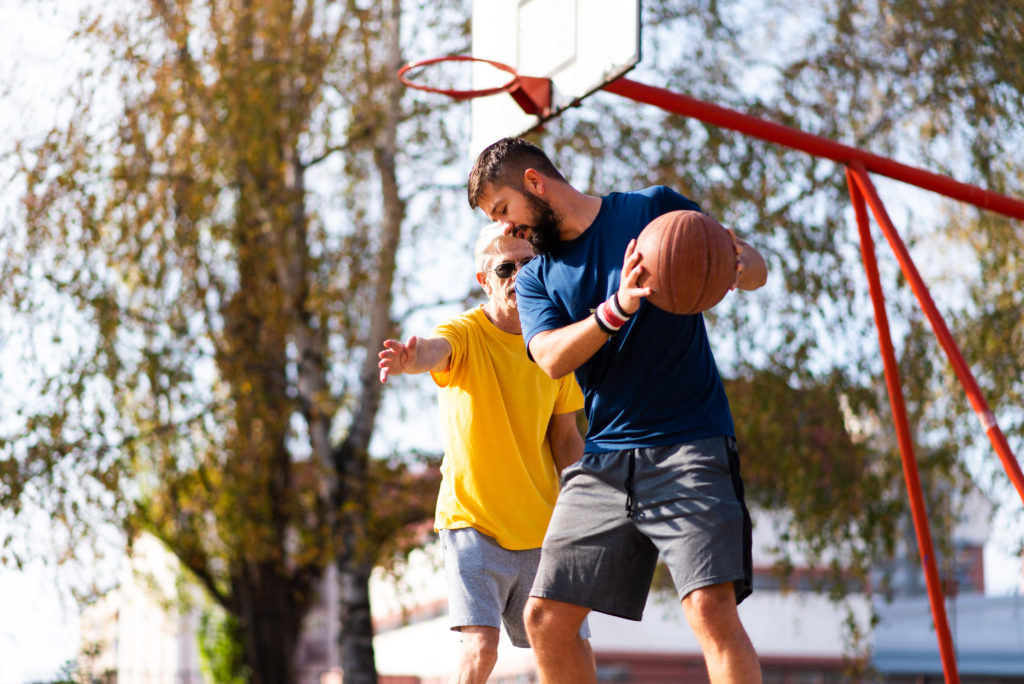Quick Hits
Daily brief research updates from the cognitive sciences

Exercise is good for you – we all know that. The research is also overwhelming showing incredibly wide-ranging benefits, heart health, lower inflammation, better metabolism, lower risk of degenerative diseases, and the list goes on and on. So, all in quite simple – get exercising.
I have also reported on the multiple benefits for the brain – from exercise in childhood being able to be seen in the brain 40 year later, to general improved cognition, and brain plasticity, brain growth that is.
But most of these studies focus on long-term or bouts of exercise lasting weeks or months. What about just one session of exercise? Is it too little to have any tangible benefits apart from the short-term glow of having done something positive and having a short positive hormone boost?
Well, now a study from the Oregon Health & Science University published in July by Christina Chatzi et al. have shown that just a single bout of exercise can also have positive benefits and notably on brain plasticity, growth, itself.
This experiment was done in mice it must be noted. However, many exercise studies have translated well from mice to human beings so it is very encouraging.
What they did is put otherwise sedentary mice though a single exercise routine – this would be the equivalent of 4’000 steps for human beings – the researchers compared this to a game of pick up basketball.
I am sure you will be keen to know what they found.
Yes, very good news.
They noticed an increase in synapses, the connections between brain cells, in a region called the hippocampus. The hippocampus is a region that is known to be very important for memory and learning.
This happens through activating a gene called Mtss1L which seems to have been largely ignored in previous studies in the brain and exercise. This increases production of proteins that are important for shaping cell membranes and therefore helping them to growth and connect.
So, this shows that a single bout of exercise can boost synaptic growth in your hippocampus – priming your brain for learning and yes, that is growing your brain in, albeit, a small way – but also not to be scoffed at either.
So, of you go – get your sports shoes on – or just have a game of basketball, or a kick around on your way home. Your brain will thank you for it.

Andy Habermacher
Andy is author of leading brains Review, Neuroleadership, and multiple other books. He has been intensively involved in writing and research into neuroleadership and is considered one of Europe’s leading experts. He is also a well-known public speaker, speaking on the brain and human behaviour.
Andy is also a masters athlete (middle distance running) and competes regularly at international competitions (and holds a few national records in his age category).
References
Christina Chatzi, Gina Zhang, Wiiliam D Hendricks, Yang Chen, Eric Schnell, Richard H Goodman, Gary L Westbrook.
Exercise-induced enhancement of synaptic function triggered by the inverse BAR protein, Mtss1L.
eLife, 2019; 8
DOI: 10.7554/eLife.45920
More Quick Hits
COVID on the Brain
Many COVID-19 patients have reported various neurological symptoms – the well-known brain fog, but also headaches and decreased cognitive function over months and extended periods of time. This even without serious infection or hospitalization. The research seems to...
Life satisfaction after work related to personality traits
As many of you know I have done plenty of work into personality and so found this study interesting. Dusanee Kesavayuth of Kasetsart University in Bangkok, Thailand analysed data from 2,000 adults aged between 50 and 75 in the British Household Panel Survey and found...
Unique regulation of brain in yoga practitioners
Quick HitsDaily brief research updates from the cognitive sciences es, you yoga practitioners knew you were special and here is the science to prove it! In this older study I came across (2018) participants were recruited to see how they dealt with...
Neurodivergence and the lonely brain
Quick HitsDaily brief research updates from the cognitive sciences eurodivergence is term that describes those that are not “neurotypical” such as those with autism and ADHD. In the surge of research into loneliness spurred by the pandemic it has...
Art Engages the Social brain
Quick HitsDaily brief research updates from the cognitive sciences reported in last week’s Quick Hits on how engaging in the arts has a relationship with self-control and avoidance of disagreeable and criminal behaviour and that is why this...
Swearing can increase strength, self-confidence, and risky behaviour
Quick HitsDaily brief research updates from the cognitive sciences wearing is frowned upon in many circumstances but is also used by many people in casual situations and particularly by comedians. So why do we swear if it is taboo? A team of...






